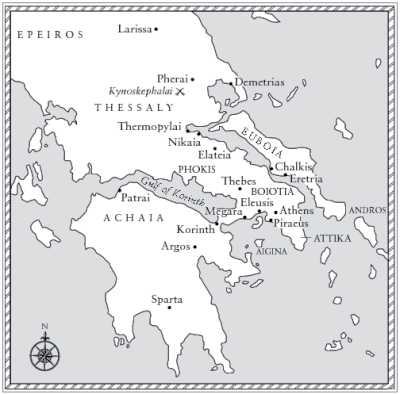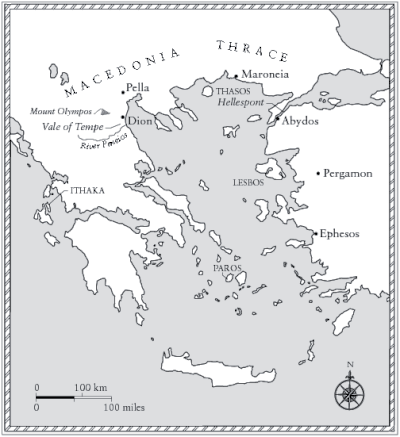Of Merchants & Heros


PAUL WATERS
OF MERCHANTS & HEROES

MacMillan

First published 2008 by Macmillan
This electronic edition published 2008 by Macmillan
an imprint of Pan Macmillan Ltd
Pan Macmillan, 20 New Wharf Road, London N1 9RR
Basingstoke and Oxford
Associated companies throughout the world
www.panmacmillan.com
ISBN 978-0-230-71367-3 in Adobe Reader format
ISBN 978-0-230-71366-6 in Adobe Digital Editions format
ISBN 978-0-230-71369-7 in Microsoft Reader format
ISBN 978-0-230-71368-0 in Mobipocket format
Copyright Paul Waters 2008
Maps designed by Raymnd Turvey
The right of Paul Waters to be identified as the author of this work has been asserted by him in accordance with the Copyright, Designs and Patents Act 1988.
You may not copy, store, distribute, transmit, reproduce or otherwise make available this publication (or any part of it) in any form, or by any means (electronic, digital, optical, mechanical, photocopying, recording or otherwise), without the prior written permission of the publisher. Any person who does any unauthorized act in relation to this publication may be liable to criminal prosecution and civil claims for damages.
A CIP catalogue record for this book is available from the British Library.
Visit www.panmacmillan.com to read more about all our books and to buy them.
You will also find features, author interviews and news of any author events, and you can sign up for e-newsletters so that you’re always first to hear about our new releases.

ITALY

GREECE

THE AEGEAN BASIN
HOTSPUR: . . . the time of life is short; To spend that shortness basely were too long . . .
Shakespeare,
King Henry IV
, Part 1, Act 5, Scene 2.
It is in the capacity to love, that is to see, that the liberation of the soul from fantasy consists.
Iris Murdoch,
The Sovereignty of Good

ONE
WHEN I WAS FOURTEEN
I put aside my boy’s tunic and assumed the plain mantle of adulthood. We held a ceremony at home on the farm, at the shrine of the Lares beside the olive grove. The slaves and the farmhands stood by while my father sacrificed a goat-kid, and afterwards poured wine and incense for the god.
I had supposed, without knowing how, that from that day everything would be different. But next morning, when the feast was over and my new white toga had been folded and packed away in the old bronze-bound clothes-chest in my room, I felt just as much a boy as before. It was only later that year that I learnt what it was to leave childish things behind, when I killed a man.
I daresay, if you are a Roman, this will not surprise you greatly, for at that time the remnants of Hannibal’s army were still scattered all over Italy, raiding farms and setting upon unwary travellers. But the man I killed was not one of Hannibal’s men, nor was I in Italy when it happened. And though I was glad he died, I had not intended to kill him.
My father was a quiet, pious, learned man. He could have gone to Rome and made a name for himself, and a fortune with it, as many men were doing then. But he used to say that fame among fools was no fame at all, and chose instead to stay on our farm in high Praeneste, reading his books and living with the steady turn of the seasons, as his ancestors had done before him. He was at that time about fifty, lean and grey-haired and old-looking. But for all his gentleness he had a core of iron.
When I grew up, and had learned a few things for myself, I came to realize that he was a good man, and his quiet came not from dullness but from wisdom. But at the time, like any boy of fourteen, I merely thought him distant and austere, and I longed for something new.
Change came soon enough. In that same year, the first of my manhood, he called me one day to his study and announced he intended to pay a visit to my uncle on the island of Kerkyra, where the Roman naval base was. Saying it was time I saw something of the world, he took me with him. And so it was, that spring, when the ewes had borne their lambs and the snows had melted from the high passes, that we took the coast-road south, and at Brundisium boarded a merchantman bound for Greece.
I remember on the prow was carved a fearsome gaping serpent’s head, Carthaginian work with blood-red eyes and bared teeth. The Libyan crewman with the gold hoop earring and oiled black hair laughed when he saw me staring, and whispered in my ear that it was to ward off the evil spirits of the sea, of which there were many.
So much for magic charms. I have never put my trust in them since.
The other passengers were businessmen mostly – traders and merchants on their way to Kerkyra and Greece, full of their affairs, and measuring their worth by their neighbour’s. They sat about under the awning at the stern, or hung over the rail looking gravely at the water, mumbling prayers for luck, or talking loudly with false confidence. For a sea crossing is always uncertain.
And there was the girl.
She kept herself apart, standing at the far rail with her elderly, fussing Greek tutor. I smiled at her once, but she did not smile back.
She was fine-boned, with a mantle of white silk pulled up over her hair. Even while her things were being carried on board, the Libyan had his eye on her. I saw him sitting on a coil of mooring line, picking at his glistening hair with his long nails and staring like a lizard. Once, she turned and caught him, and then he looked away.
He had a strange expression on his face, like hunger. I have seen it many times since; but then I was young, and did not know it for what it was.
As for me, I liked the way she kept to herself and ignored the chattering merchants. She had a natural dignity, complete in what she was, like someone old caught in a child’s body.
Little did I know, on that bright morning, that she would tear my life apart. Such is the blindness the gods grant to men, to spare them from madness. The Fates weave what they weave, and not even a god can undo their handiwork.
The pirates came on the afternoon of the second day.
We had already crossed the open water between Italy and Greece, and were sailing south, following the coast of Epeiros with its dark cliffs and pine-clad hills. Already, far ahead, the shadowy peak of Kerkyra island loomed on the horizon, and the passengers, anticipating the end of their journey, had begun to spread about the deck. I could see my father, his face serious, nodding as one of them bored him with some business talk.
I turned back to the sea. I was sitting by the anchor in the prow, with my legs dangling over the side, looking out for dolphins. The girl had come forward and was standing nearby, under the shade of the great square sail. Suddenly she stepped up and said, ‘What is that?’
I looked up at her, then followed her gaze. At first I could see nothing except the still, rocky coastline, pink and purple in the slanting light. I shaded my eyes with my hand.
‘No, there,’ she said, pointing.
Off to one side was a small wooded islet. It was so close to the coast that I thought at first it was no more than a headland jutting out into the sea.
A low sleek craft had emerged, speeding out from under its lee, bearing down on us, its black oars thrashing on the water.